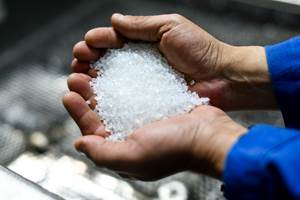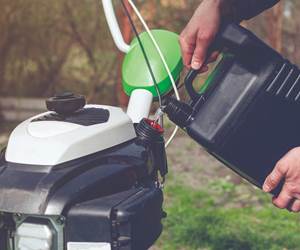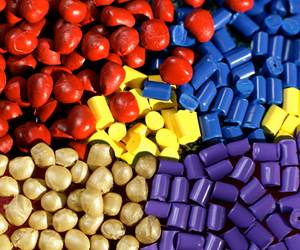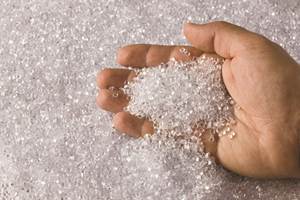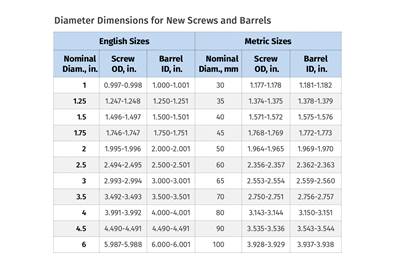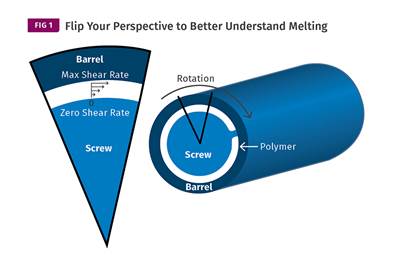A lot can happen in 14 years. Agilyx in Tigard, Ore., was founded to develop hydrocarbon recycling technologies that convert mixed plastics to high-quality crude oil (otherwise known as plastics-to-oil).
Around 2008, the company’s batch pyrolysis technology was commercialized, and by 2012, Agilyx synthetic crude oil became a U.S.-registered synthetic chemical. Agilyx went on to produce and sell more than 800,000 gal of oil from waste plastics.
However, when oil prices plunged, this impacted energy-dependent companies, including Agilyx, and the low oil prices forced the company to make a shift. As a result, it found a new opportunity:
Agilyx expanded its technology platform by developing what’s reportedly the first circular chemical-recycling system capable of converting waste polystyrene back into styrene monomer.
The company began testing different plastic streams on its pyrolysis unit that was previously used to produce the plastics-to-oil and eventually settled on PS. Joe Vaillancourt, CEO of Agilyx, says PS is a distinct polymer with a high need for recycling, and that focusing specifically on the material is less complicated than working with lots of different plastics.
“We have a fantastic technology. We know how to take waste plastic to make high-quality crude oil, and we had a ‘eureka’ moment,” says Brian Moe, v.p. of operations. Polystyrene lately has developed a bad reputation in the public eye for being perceived as unrecyclable. Even though some PS is recycled, it’s not on a large scale.
This is where Agilyx saw the market need.
FINE-TUNING THE PROCESS
“You can’t just turn a machine on and put waste plastic in and expect quality output,” Vaillancourt says. “There is a significant amount of know-how and chemical testing that must take place.”
When the company decided to change courses, it retrofitted parts of the Tigard facility that was originally set up for mixed waste and the plastic-to-oil process to instead perform PS-to-styrene-monomer production. While the pyrolysis and front-end systems are the same for mixed-waste plastics and PS, the back-end cleaning trains are different. About 50 “tweaks and enhancements” were made to the company’s equipment to be able to convert PS to styrene monomer. In 2016, the company had its first successful styrene run in Tigard.
GATHERING THE MATERIAL
Moe says that for the process to be truly effective, Agilyx needed to go upstream to manage the plastic feedstock itself. Particularly with PS, very few recycling programs allow the material into the recycle stream. “We found by us creating innovation around the supply chain, how we source and pre-process the material allows us to control the output of our product,” Moe says.
Agilyx can handle all types of foam PS materials, including cups and food containers that might still have residue left on them. The company reached out directly to businesses and the general consumer market to obtain the material. Outside of the Tigard plant is a drop-off bin where consumers can leave their waste polystyrene.
We have lots of people dropping off the material to our facility and a lot of people have the desire to make sure it gets recycled.
Vaillancourt says Portland is the ideal community to launch such an initiative because there’s plenty of community engagement and they’ve had around 100 people a day drop material off.
Agilyx worked with local supermarket chain Fred Meyer to launch a pilot program to recycle PS foam from seven of the Fred Meyer stores in the metropolitan Portland area. A company called B-Line, an urban delivery service, agreed to use its fleet of electric-assisted tricycles to collect PS from two of the downtown stores. This is considered an innovative collaboration in which a major store chain works with a “final mile” logistics company to deliver waste PS for recycling.
“We have lots of people dropping off the material at our facility, and a lot of people have the desire to make sure it gets recycled,” Moe says. “We also have partnerships. The good news is there are many people open to cooperate with us to make sure the material ends up in the right place.”
Last year, Agilyx received a $50,000 grant from the Foam Recycling Coalition to purchase a densifier, allowing for more recycling of foam PS. Adding a densifier at the front end of the operation will allow for more efficient recycling and processing of the material.
HOW IT WORKS
Once Agilyx receives the material, the firm converts it to liquid styrene through pyrolysis. The liquid styrene is then sent to a styrene refiner, and the refined styrene is shipped to a resin manufacturer. AmSty in The Woodlands, Texas, and Ineos Styrolution, Aurora, Ill., produce PS materials using Agilyx’s refined styrene.
“With our product, there are no restrictions since we are creating monomer that’s as good as virgin, or in some cases better than virgin. There’s no downgrade in the product,” Moe says.
Agilyx’s plant, which opened in April 2018, became the world’s first commercial-scale, closed-loop chemical recycling process for PS. It can recycle up to 10 tons/day of previously unrecoverable polystyrene waste and produce high-quality styrene monomer.
“Chemical recycling and innovative recycling solutions for PS will enable us to reuse collected post-consumer PS waste in our manufacturing processes to produce high-quality virgin PS. This represents a great opportunity to save valuable resources and avoid waste ending up in landfills,” says Ricardo Cuetos, v.p. of standard products at Ineos Styrolution America.
HERE TO STAY
Prior to joining Agilyx, Vaillancourt’s background included 15 years with Waste Management Inc., and then working with private equity in the energy and industrial sectors, including participating in the financing and commercialization of more than 15 environmental technology companies. He says Agilyx occupies an interesting position between the petrochemical and recycling industries, two areas that don’t typically have a lot of crossover.
Agilyx believes its chemical recycling pathway is a true circular and sustainable solution for waste PS and serves as a foundation to pursue other discrete polymer recycling pathways.
“I’ve been in this industry for a long time—not just plastics recycling—and I think unfortunately there’s a huge misunderstanding and lack of education about plastics and recycling,” Vaillancourt says. “We use plastics in almost everything we do every day. As long as we work together to do the right thing, the material can be durable for a long time.”
And while chemical recycling is still a new industry, he believes it has staying power. “Chemical recycling isn’t a small boutique opportunity—it’s massive,” he says. “It can be as big as the U.S. oil industry, but the only real way it happens is for people to take a proactive participation approach. The recycling behavior is really the key: If people want us to clean up the world, they just have to participate.”
Questions About Recycling? Visit the Recycling Zone.
Related Content
Prices for All Volume Resins Head Down at End of 2023
Flat-to-downward trajectory for at least this month.
Read MorePolyethylene Fundamentals – Part 4: Failed HDPE Case Study
Injection molders of small fuel tanks learned the hard way that a very small difference in density — 0.6% — could make a large difference in PE stress-crack resistance.
Read MoreFundamentals of Polyethylene – Part 6: PE Performance
Don’t assume you know everything there is to know about PE because it’s been around so long. Here is yet another example of how the performance of PE is influenced by molecular weight and density.
Read MoreFundamentals of Polyethylene – Part 3: Field Failures
Polyethylene parts can fail when an inappropriate density is selected. Let’s look at some examples and examine what happened and why.
Read MoreRead Next
Troubleshooting Screw and Barrel Wear in Extrusion
Extruder screws and barrels will wear over time. If you are seeing a reduction in specific rate and higher discharge temperatures, wear is the likely culprit.
Read MoreUnderstanding Melting in Single-Screw Extruders
You can better visualize the melting process by “flipping” the observation point so that the barrel appears to be turning clockwise around a stationary screw.
Read More

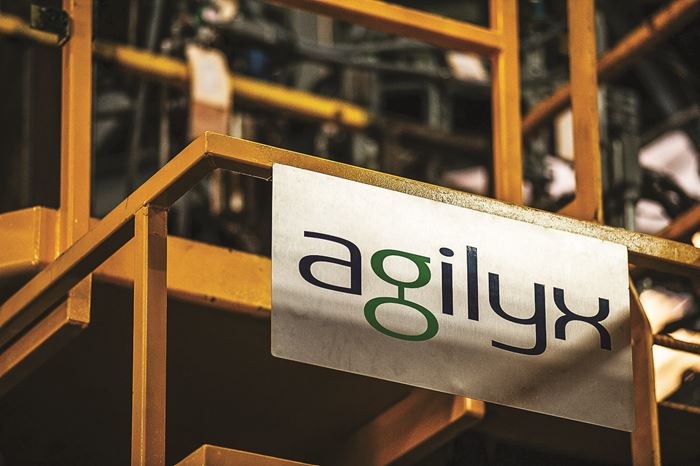
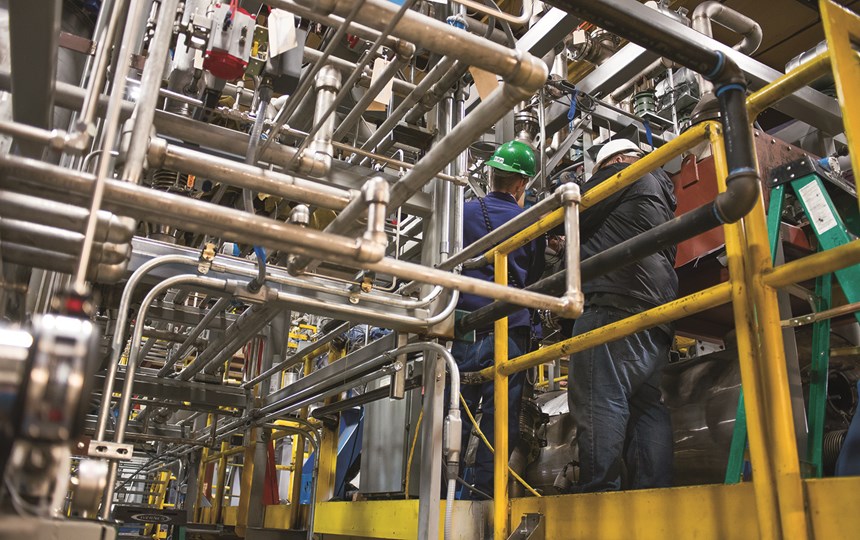
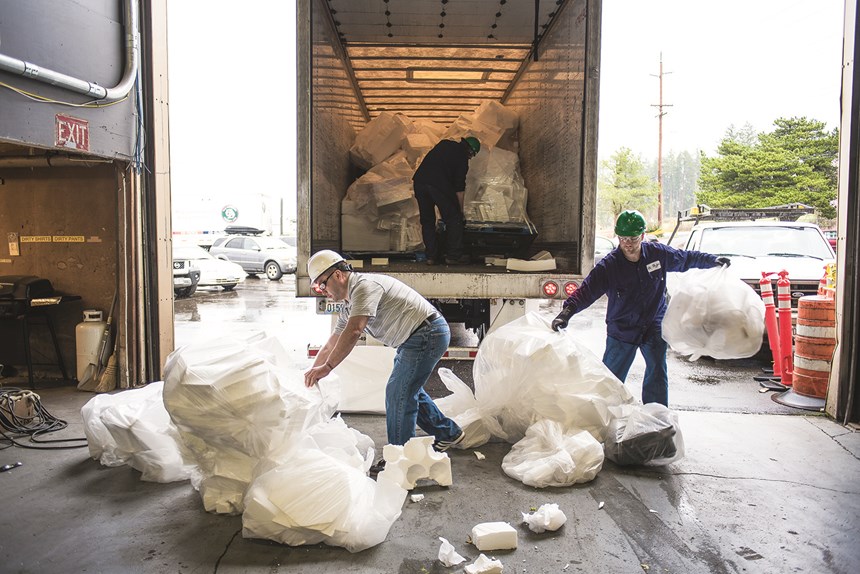
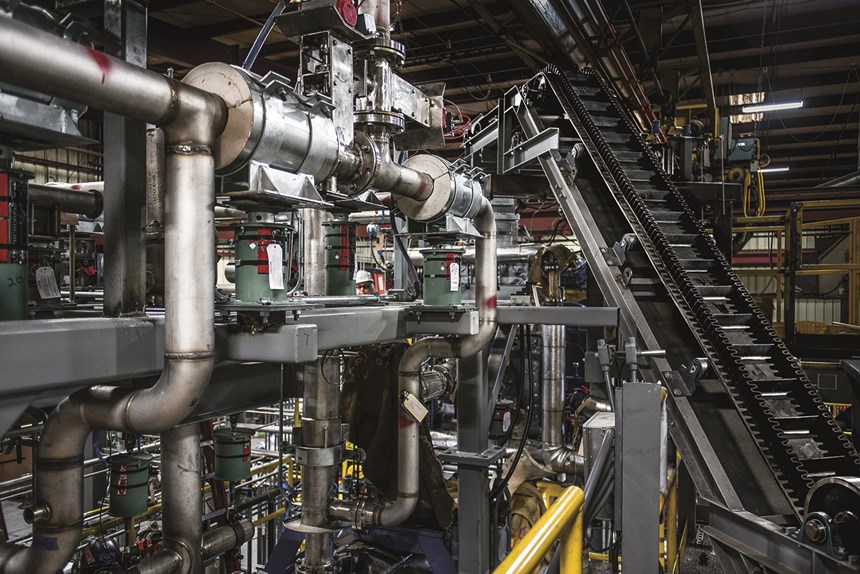















.png;maxWidth=300;quality=90)





